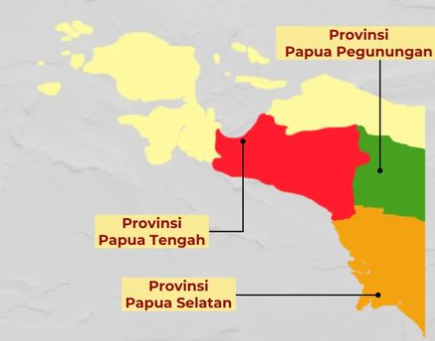https://www.ucanews.com/news/rights-activists-slam-indonesias-baseless-claims-at-un/99396
Rights activists have criticized the Indonesian government for what they call baseless claims on rights issues at the UN Human Rights Council, including those related to the handling of the conflict in the Papua region.
In the UPR session, Indonesia was represented by the Minister of Law and Human Rights, Yasonna H. Laoly.
Laoly claimed that the government always cooperates with human rights defenders, civil society organizations, journalists, and other civil elements to ensure the protection of human rights.
While on the issue of impunity, the government emphasized the provision of reparations for victims and that non-judicial mechanisms were complementary to judicial mechanisms and promised to properly investigate past gross human rights violations.
The same applies to the issue of human rights in Papua, where he said that most cases of violence in Papua have been investigated and the perpetrators have been punished.
Regarding the Papua issue, she said, “the reality is that there are no cases involving security forces in Papua, including extrajudicial killings, which have previously been successfully investigated and tried in an independent court. "
“In the report, the government only conveys the situation in Papua from the perspective of infrastructure development, and welfare, even though at the same time violence continues. Of course, it is unfair to answer all this violence only with the jargon of infrastructure development," she said in a statement.
She also highlighted the repeated violations of the Papuan people's right to freedom of expression and peaceful assembly, as well as the government's tendency to strengthen its security approach.
“The Indonesian government states that the international community must be able to distinguish between human rights issues in Papua and legal enforcement actions. The question is, has the Indonesian government been able to tell the difference?” Nurina said.
"Extrajudicial killings, silencing of expression, against Papuan civil society is not an act of law enforcement, it is a clear violation of human rights," she added.
For example, she highlighted the current revised draft of the Criminal Code which still includes an article on asking for permission to hold demonstrations.
“This is against the spirit of democracy in Indonesia and will be increasingly repressive. Moreover, in Papua, the number of violence due to restrictions on the right to free expression can increase," she told UCA News on Nov. 11.
She also highlighted the government's claims related to many infrastructure developments which are presented as means to assist Papua but do not address the political status of Papua within Indonesia.
She said the situation in Papua was mentioned by approximately nine countries in the UPR session for Indonesia.
Papua is a former Dutch colony that declared independence in 1961. However, Indonesia annexed the territory through a referendum widely considered a sham.
A separatist movement for independence was born, prompting Indonesia to maintain a heavy military presence in the resource-rich but underdeveloped province.
The Ministry of Home Affairs today inaugurated three new autonomous regions that formerly formed part of Papua province, raising the number of Indonesian provinces to 37.
Central Papua (Papua Tengah), Highland Papua (Papua Pegunungan), and South Papua (Papua Selatan) now join Papua and West Papua as the five provinces occupying the Indonesian half of New Guinea island.
Legislation for the three new autonomous administrative regions, aimed at improving governance and public services, was ratified by parliament in late June, after which wheels were set in motion for their formation.
Today, Home Affairs Minister Tito Karnavian appointed Apolo Safanpo as South Papua governor, Ribka Haluk as Central Papua governor, and Nikolaus Kondomo as Highland Papua governor. All three are serving in interim capacity until elections can be held in 2024.
“Today, on November 11, 2022, I, Tito Karnavian, as home affairs minister representing the president of the Republic of Indonesia, inaugurated the provinces of South Papua, Central Papua, and Highland Papua,” Tito said in the inauguration ceremony in Jakarta.
The formation of the three new provinces has not entirely been a cause for celebration, particularly for indigenous communities and secessionists on the island. Many see the move as a ploy by Jakarta to further divide the region and impose tighter control over the Papuan people and the resource-rich island.
Papua was a Dutch colony until the early 1960s, when it declared itself an independent nation in 1961. Neighboring Indonesia took control of the region by force in 1963 and officially annexed it with a UN-backed referendum in 1969 that was widely seen as a sham.
------------------------

No comments:
Post a Comment
Note: Only a member of this blog may post a comment.